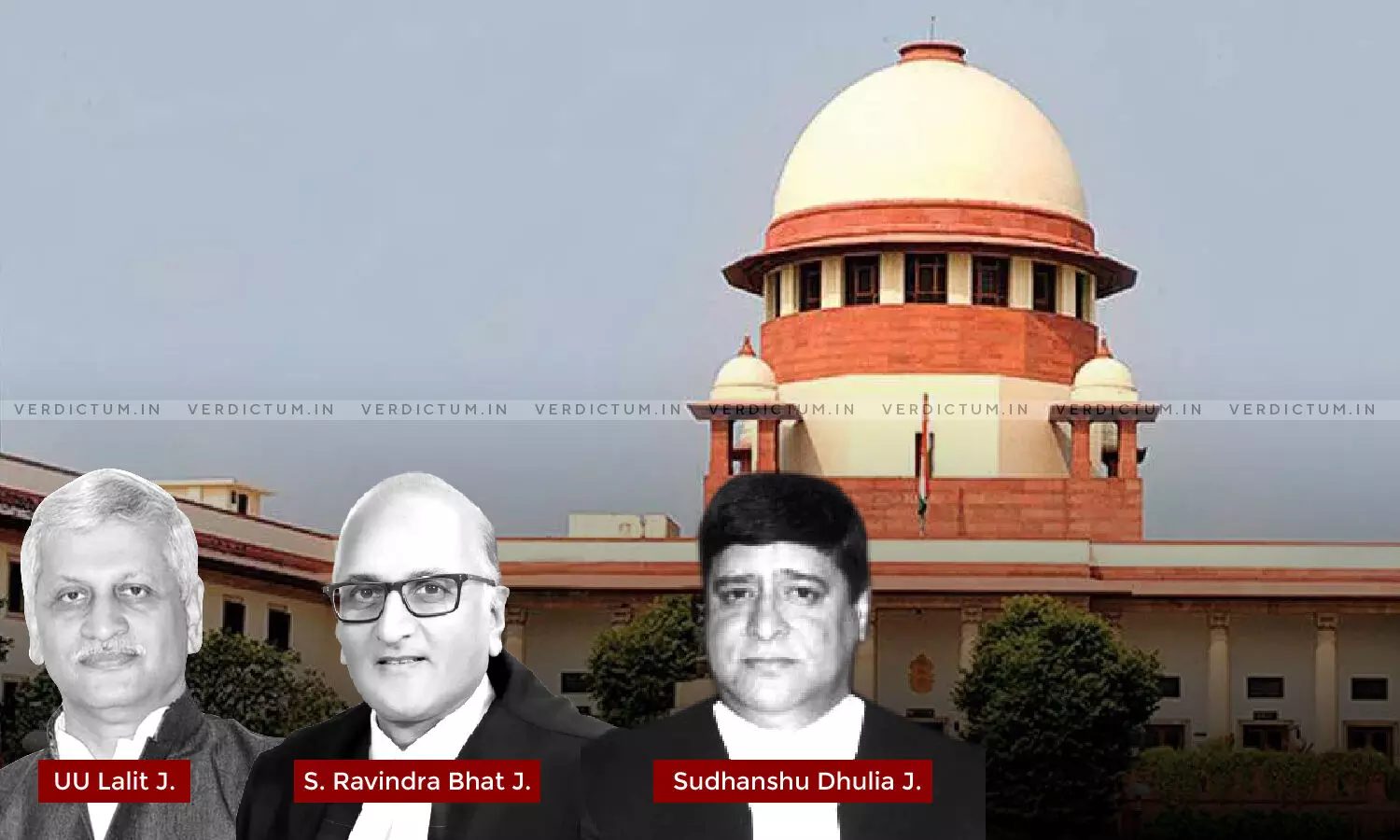
Prosecution's Case Based On Confessional Statements Before Police- SC Sets Aside Conviction For Murdering A Senior Citizen
 |
|The Supreme Court has set aside the order of conviction and life sentence imposed on four persons who were accused of murdering a 72-year-old man.
The Bench of Chief Justice UU Lalit, Justice S. Ravindra Bhat, and Justice Sudhanshu Dhulia observed "…in the present case it has become necessary to interfere with the findings for the reasons that both the High Court as well as the Sessions Court have ignored the well-established principles of criminal jurisprudences and have relied upon facts and evidences which are clearly inadmissible in a court of law."
The Court had observed that the entire case of the prosecution was based on the so-called confessional statements or voluntary statements given by accused persons while they were in police custody.
The Court noted that both the Trial Court and the Appellate Court went completely wrong in placing reliance on the voluntary statements of the accused and their videography statements.
Advocate Lakshmeesh S. Kamath, appeared for the appellant-accused and Additional Advocate General Nikhil Goel appeared for the State.
In this case, an FIR was lodged on October 12, 2000, after one S. Ramakrishnan, a 72-year-old man, was murdered by some unknown persons. Police after its investigation filed its chargesheet for the offences under Section 302 read with 34 IPC, against all accused-appellants.
Ultimately the accused were convicted by the Trial Court under Section 302 read with Section 34 IPC.
Out of the five accused, who faced trial and were convicted and their conviction sentence was upheld by the High Court, four accused approached Supreme Court.
The Court noted that there was no direct evidence in the case. The Court observed that there was no forensic or scientific evidence that links any of the present appellants to the crime.
The Court also noted that the so-called discovery of the weapon of crime and the discovery of stolen gold material was also severely flawed.
The Court observed "…the gold which has been recovered has not been identified as the one which was stolen from the house of the deceased. The recovery of knife is also doubtful. Firstly, Venkatesh who had led the discovery had mentioned about the knife and its disposal on 01.02.2001 when he was arrested. The recovery, however was made on 15.05.2001 i.e., four and a half months later. Why such a belated recovery was made has not been explained. Secondly, the independent witness to this recovery PW-10 Murugan, had also turned hostile during cross-examination as he said that he does not recognize Venkatesh (accused) on whose pointing out the alleged recovery was made. So much for the recovery of the murder weapon."
The Court noted that what was given before the Court was a chart giving description of offences, numbers and Sections under which such offences had been allegedly committed and that no documents in the nature of chargesheet or any other proof was submitted.
The Court held that both High Court and Sessions Court relied upon facts and evidences which are inadmissible in a court of law.
Therefore the Court allowed the appeals filed by the appellants-accused and set aside the Order of the Sessions Judge and High Court.
Cause Title- Munikrishna @ Krishna Etc. v. State By Ulsoor PS
Click here to read/download the Judgment